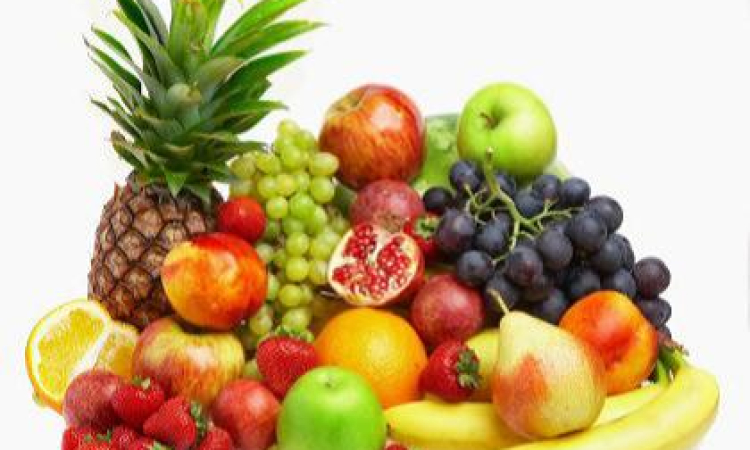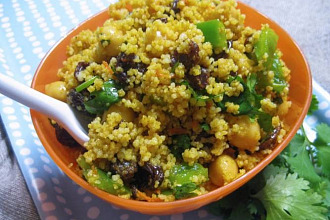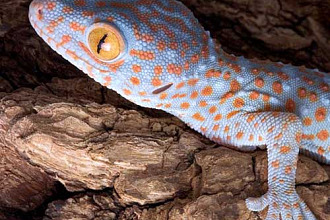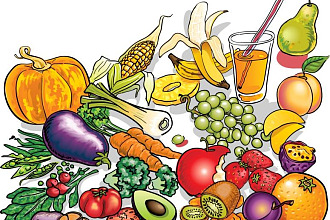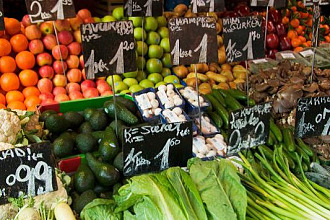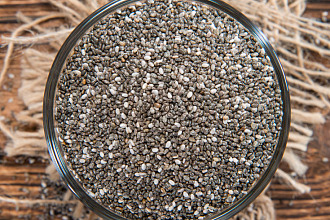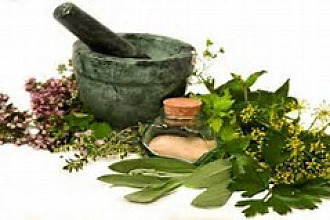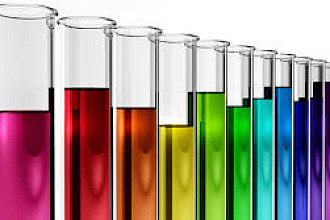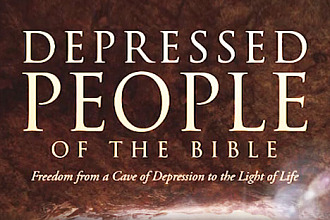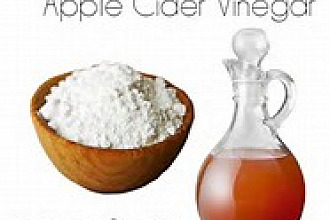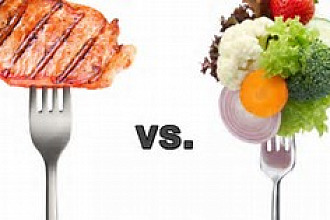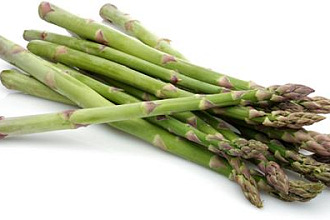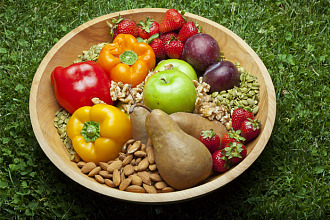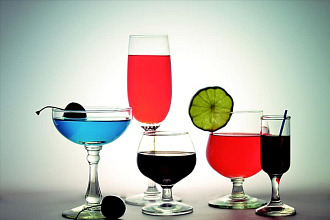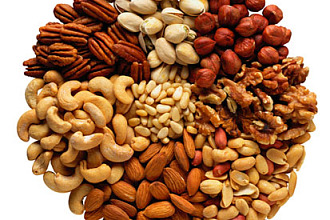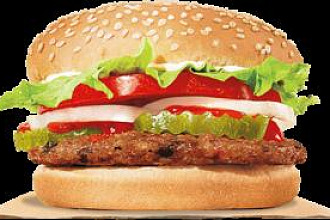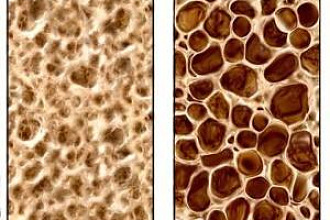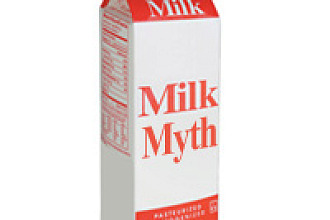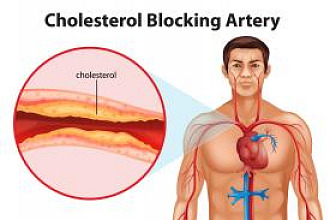You have probably heard these sayings: “Life is uncertain. Eat dessert first.” “A balanced diet is a cookie in each hand.” “A man cannot live on chocolate alone, but a woman sure can.” Such common quotes reflect our love and desire for sugary products.1 In the United States the average individual consumes over 140 pounds of sugar annually, the equivalent of 50 teaspoons per day. That adds up to over 350 calories a day or 20 percent more than we consumed three decades ago. Unfortunately, it is prominently revealed in our hips and waistlines. Of that amount, 70+ pounds is “added” sugar, roughly 25 teaspoons every 24 hours.2 The “added” or “excess” sugars are those which are augmented by home cooks and commercial kitchens during processing of food and beverages.
Approximately 70 percent of added sugars come from foods purchased in supermarkets or grocery stores. In a National Health and Nutrition Survey of 31,000 children, teenagers, and adults, the following percentages were found for sugar intake: Sodas are the largest contributors at 34 percent. More than 1 in 4 persons in the U. S. drink sugar-sweetened beverages daily with the highest consumption among African-Americans and Latinos ages 18-34. Next are cakes and cookies at 13 percent, fruit drinks at 8 percent, candies at 7 percent, and dairy desserts at 6 percent.3
Sugar’s Human Toll
According to current research published recently in the journal, Circulation, consumption of sugary products, particularly sweetened drinks, may lead to an estimated death of 184,000 adults each year worldwide. One study indicated that sugar-sweetened beverages contributed to 133,000 deaths from diabetes, 45,000 deaths from cardiovascular disease, and 6,450 deaths from cancer. Of the 20 most populous countries studied, Mexico came in first with the United States second on the highest death rates attributed to sugary drinks.4
Listed below are a variety of human diseases that are affected by high sugar consumption.
Obesity
In a research project conducted by Purdue University, researchers provided 15 adults with 450 calories of sugar daily either in liquid (a soda drink) or solid (jelly beans) form. After 30 days on the jelly beans the volunteers compensated by eating less of other foods, resulting in no added weight. However, those drinking the soda actually ate slightly more food. That, plus the calories from the soda, caused them to gain weight. Sugar-sweetened sports and energy drinks, including sweetened teas
have the same effect of increasing one’s weight.5
Heart Disease
When Harvard scientists tracked over 80,000 women for more than two decades they found that regardless of weight, those who drank at least two sugar-sweetened drinks daily had a 20 percent higher risk of heart disease as compared to those who drank less than one such beverage per month. Fructose also raises triglycerides following a meal.6 In 2009, the American Heart Association recommended that women limit their added sugar to six teaspoons (25 grams) a day, and men to no more than nine teaspoons (38 grams) per day as compared to the 20+ teaspoons the average adult currently consumes.7
Stroke
Scientists who studied the health and eating habits of 12,000 individuals over a 15-year period found that those participants who had more than 25 percent of their calories from sugars were 2½ times more likely to die from strokes than those whose sugar calories made up less than 10 percent of their regular nutrition.8
Diabetes
A researcher’s report in the Journal of American Medical Association that tracked over 90,000 women for eight years who had consumed one sweetened beverage per day showed an 83 percent higher risk of Type 2 diabetes than those who drank less than one per month. A team from the University of Cambridge found that just one sugary soda per day boosts the odds of developing Type 2 diabetes by 13 percent even if the individual is lean. They also estimated that if the average American were to break the sugary drink habit, 2 million new cases of diabetes could be prevented over the next five years.9
Aging Skin
Sugar contributes to premature aging, just as cigarettes and UV rays do. Skin cells are constantly trying to repair themselves from sun or other free- radical exposure. When sugar is present in the skin, it forms cross-links with amino acids and these jam the repair mechanism and can leave you with prematurely old-looking skin.10
Gout
In a health study of 46,000 men,
those who obtained at least 12 percent of their calories from fructose (sugar) were nearly twice as likely to be diagnosed with gout during the next 12 years as those who got less than seven percent.11
Overeating
The leptin hormone made by your fat cells is supposed to tell your brain to stop eating. However, when investigators fed rats for six months with over 60 percent of their diet as sugar, they became resistant to leptin which failed to curb their appetite. In humans they have observed that those who are obese are also resistant to leptin.12
Breaking the Sugar Cycle
1. Cut in Half
If you have been drinking two sodas per day, reduce your daily intake to one per day for a week or two. After the two-week period cut your soda intake again by 50 percent and only drink a soda, fruit juice, or sports drinks every other day. One of the best ways to make you think twice about drinking sugary drinks is to remind you how much exercise you need to do to burn off the calories. When such signs were posted at convenience where teens purchase soda or fruit drinks the purchases dropped by at least 90 percent or they purchased smaller sizes.13
2. Reduce Sugar-Free Drinks
Swapping sweet drinks for sugar-free beverages still damages your pearly whites according to a group of Australian researchers. They tested 23 different sports and soft drinks on healthy, extracted molars and found that they all cause erosion of the dental enamel. Any acidic beverage eroded them by 30-50 percent.14
3. Limit Your Sweet Bite
Many individuals were brought up in families where the evening meal was not complete without a dessert. To assist you in decreasing your fructose intake determine to limit your desserts to once a week, say after Sabbath or church fellowship lunch. The only exception would be special occasions such as birthdays, graduations, weddings, etc.
4. Eat Fresh Fruits
All fruits are healthful but those with low glycemic load such as blueberries, strawberries, cherries, and raspberries are the best, particularly if you are a diabetic. Be sure to substitute fresh fruits for juices. Whole fruits are better because fiber slows glucose (sugar) absorption as it enters the blood stream.
As we reflect on the scientific evidence about the effects of sugar on our body we are again reminded that we are stewards of our lifestyle as well as our resources.
References:
1“Sugar Wars,” Dr. Whitaker’s Word of the Month, June 2010, p. 7 & Morbidity & Mortality Weekly Report, August 15, 2014.
2Nancy Appleton, “Suicide by Sugar,” Bottom Line Personal, February 15, 2010, pp. 9 &10.
3“Added Sugars Highest in Store-bought Foods,” American Journal of Clinical Nutrition, September 2014.
4“Calculating Human Toll,” Tufts, September 2015, p. 2.
5Bonnie Liebman, “Sugar Overload,” Nutrition Action, January/February 2010, pp. 3-8.
6Ibid.
7Judy Thalheimer, “Sugar: Not so Sweet for Your Heart,” Environmental Nutrition, May 2016, p. 4.
8“Not So Sweet,” JAMA Internal Medicine, February 3, 2014.
9Bonnie Liebman, “Sugar Overload,” Nutrition Action, January/February 2010, pp. 3-8 & “Beware of Added Sugars,” The Week, August 14, 2015.
10Joanne Chen, “Your Body on Sugar,” Readers Digest, October 2012, p. 147.
11Bonnie Liebman, “Sugar Overload,” Nutrition Action, January/February 2010, pp. 3-8.
12Ibid.
13“Sugar Shock,” American Journal of Public Health, October 16, 2014.
14“Sugar-Free Drinks Hurt Teeth,” Readers Digest, April 2016, p. 60.

